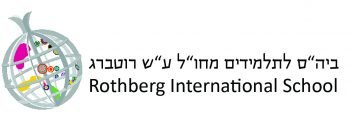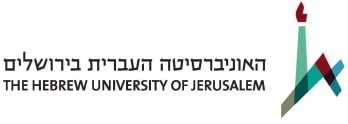Why M.A. in Israel Studies?
- Deepen your understanding of Israeli history, politics, society and culture
- Study in Israel’s capital city and immerse yourself in a Hebrew-speaking environment
- Complete a master’s degree in one year at Israel’s top university.
The State of Israel is a complex mix of ancient and modern, sacred and secular, East and West, conflict and coexistence. Through the M.A. in Israel Studies – offered by the Hebrew University’s Rothberg International School (RIS) in conjunction with the Departments of Political Science and Sociology & Anthropology – you’ll examine the historical processes that led to the creation of contemporary Israeli society and politics, the complicated relationships between the various groups that live side by side in Israel, and the ways in which Israel copes with these challenges domestically and abroad.
The program incorporates courses from a wide range of academic disciplines, including history, sociology, anthropology, political science, international relations, economics and religious studies. You will engage with Israeli politics, media and geography in a hands-on way and have the option to study Modern Hebrew intensively.
Structure
The program runs from October – June. During that time, you will take a combination of required and elective courses. Modern Hebrew study is optional and requires payment of an additional fee.
Credits
The M.A. in Israel Studies consists of 36 credits over two consecutive semesters.
Courses
Information about the M.A. in Israel Studies starts on page 37 of the above catalog. Please note that the program is subject to change. The information provided in the catalog will help you get a sense of the structure of the program and kinds of courses we offer, but changes are made from year to year.
If you have a high enough level of Modern Hebrew proficiency, you may also choose graduate-level courses taught in Hebrew at the Departments of Political Science, Sociology and Anthropology, Journalism and Communications, International Relations, and History. Such courses must be approved by your academic advisor.
Seminar Papers
You will submit at least two seminar papers, for which you will earn a total of 8 credits toward the 36 credits of the degree.
Modern Hebrew
Knowledge of Modern Hebrew will grant you access to Israeli society and primary source material. You’ll have the opportunity to study Modern Hebrew for about 14 hours per week (depending on your level) during the autumn and spring semesters, for an extra fee. In addition, students can enroll in the Summer Ulpan (intensive Hebrew language training) prior to the start of the M.A. program, also for an extra fee. Modern Hebrew courses are optional and do not count as credit toward the degree. More information about Modern Hebrew studies can be found here.
If possible, we encourage you to obtain at least level Gimmel in Modern Hebrew by the end of your M.A. studies, so that you can read Modern Hebrew texts. Learn more about our Hebrew levels here.
Note: Modern Hebrew credits do not count towards the credit requirements of the degree.
Additional Language Studies
If you wish to study an additional language, you may do so with approval from your academic advisor.
Please note that some additional language courses are not included in the M.A. tuition and involve payment of an extra fee.
As a student in the M.A. in Israel Studies program, you will study with an experienced group of faculty, who lead research in a wide range of disciplines, including political science, sociology, international relations, communications, and Middle East studies.
Dr. Yael Berda, the academic head of the M.A. program, is a faculty member of the Department of Sociology and Anthropology. Dr. Berda specializes in law, race, bureaucracy and the state, within a colonial and imperial context.
Click here to view a partial list of Israel Studies lecturers.
Click here to see what our alumni from recent years are doing academically and professionally.
The Hebrew University’s RIS offers a rich extracurricular activities program, including tours, social and cultural events, lectures, and more. We support you throughout your stay with us so that Jerusalem becomes your home away from home. Learn more about the Office of Student Life here.
Click here to view one of the OSL’s weekly emails to students with information about events taking place on campus and around Jerusalem.
Early admissions
- Apply: November 15, 2023 – January 15, 2024
- Application fee: US $120
- First tuition payment of US $1,500 by: February 15, 2024
- Remaining tuition payment by: March 31, 2024
- Early admissions scholarship: US $1,000 (for students who apply and pay tuition in full by the above deadlines)
- Additional scholarship for students who pay tuition in full by February 15, 2024: US $1000 (total of $2,000 scholarship)
Regular admissions
- Apply by: January 16 – June 1, 2024
- Application fee: US $120
- Tuition payment by: June 21, 2024
Students who pay the tuition in full by May 1, 2024, will receive a scholarship of $500.
Late admissions
- Apply: June 2 – August 1, 2024
- Application fee: US $250
For a list of our scholarship dates and deadlines, please check our Scholarships and Financial Aid page.
Cancellation Policy
Applicants who complete their tuition payment and then decide to cancel their enrollment in the M.A. program will receive a full refund, but will be charged a withdrawal fee, as follows:
- Cancellation by June 1, 2024: $250 withdrawal fee
- Cancellation by August 1, 2024: $500 withdrawal fee
- Cancellation by October 14, 2024: $750 withdrawal fee
For information about withdrawal fees after October 29, 2024, please refer to our Tuition Fees & Refunds page.
Arrive on campus by: Approximately one week before your program starts; specific dates will be sent to accepted students via email.
Program length: October, 2024 – June, 2025. Check our academic calendar for exact dates.
Fees & Refunds
For information about tuition, health insurance, and housing fees and refunds, see our Tuition Fees & Refunds page.
Scholarships
A number of merit and need-based scholarships are available. See our Scholarships and Financial Aid page for more information.
For tips and ideas regarding scholarships and financial planning from our current and former students, see our How Did You Finance Your Studies pamphlet.
To be eligible for acceptance, you must have the following:
- Bachelor’s degree from an accredited institution of higher education recognized by HebrewU
- Minimum B average (85/100 or equivalent)
- Demonstrated knowledge of English
In addition to your online application, you will be required to submit the following documents:
- Academic Records: Applicants must submit transcripts and diplomas from all prior academic degrees.
- Proof of English Proficiency: A TOEFL exam score of 80 or above, IELTS exam score of 6 or above, Amir exam score of 220 or above, or Amiram exam score of 120 or above. **
- A CV and Statement of Purpose
- Two Academic Recommendations
- Photocopy of your Passport ID page
- A Medical Form and Disclaimer Form(US citizens only)- both forms may be downloaded from the application website.
All documents may be uploaded to your application directly or sent to gradmiss@savion.huji.ac.il as email attachments.
** If you have completed a degree at a university at which English is the sole language of instruction, or if you have completed a degree in English Language and Literature, you can request an exemption. You must submit documentation from your university verifying English as the language of instruction. Exemption is not automatic and is determined on a case-by-case basis.
Please refer to our Frequently Asked Questions for Accepted Students or Frequently Asked Questions for Applicants to M.A. Programs page.
Apply
Contact
Questions about the Curriculum
Email Dr. Yael Berda
Academic Head of the M.A. in Israel Studies
Questions about Admissions, Scholarships, Housing, and Other Practical Matters
Email the Division of Graduate Studies
Call us: +972 2 588 3482
Fast Facts
Language of Instruction:
English
Degree Earned:
Master of Arts
Career Outlook:
Foreign affairs, relevant NGOs, journalism, academia
Length:
One year (two consecutive semesters)
Start Date:
October
Eligibility:
Accredited bachelor’s degree
Application Deadline:
June 1, 2024
Cost:
See Tuition Fees & Refunds page


